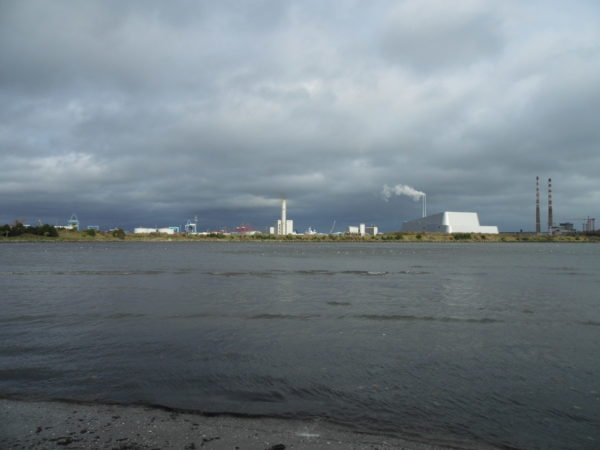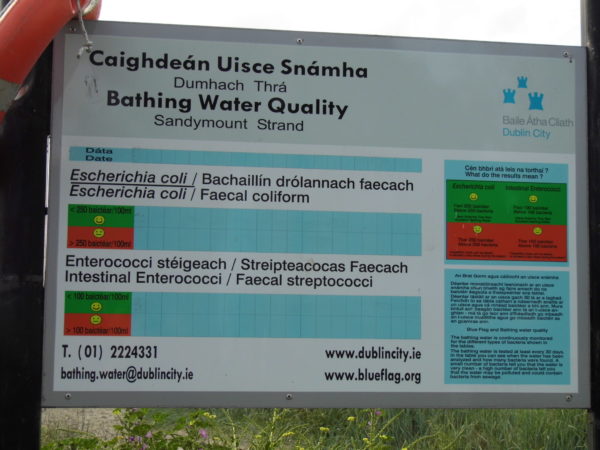
Sandymount Strand with Waste Water Treatment Plant, picture by KK
That’s one way to describe the Ringsend Waste Water Treatment plant. It was February 2018 when Irish Water announced the beginning of upgrades to the facility at a cost of €80 million. But a year later, 23rd February 2019 the focus was not so much on the upgrade than on repair work after the tank took in three times more than capacity allowed, flowed over and poured the brown stuff into Dublin Bay. Drone pictures showed the scale of the outflowing mess. The treatment cell at the Ringsend plant is constantly taking in that little bit more than it should. If you were to stuff every last sock and t-shirt into the washing machine and let it run non-stop: how long till the machine breaks down and floods the kitchen?
“There is a constant problem with the plant, in releasing untreated sewage into Dublin bay.” So said Karin Dubski, an environmental professor at Trinity College and also founder and spokesperson for Coastwatch.org. She reports regularly on the state of Irish beaches and usually that includes breaches of existing EU laws. But she also wants to raise more awareness and action among beach goers, the public and not just be upset about closed beaches and foul smells.
Another overflow happened end of May, beginning June after heavy rainfall. Eight beaches including Sandymount and Merrion Strand plus Seapoint and Forty Foot County Dublin were no-go areas. Sandymount and Merrion got the all clear again by evening Monday 10th June. The month of June finished with another overflow last weekend and subsequently Dollymount Strand was closed. Bathing prohibitions for the season are in place for Sandymount and Merrion just like last summer.

No blue flag for Sandymount Beach, picture by KK
No blue flag in sight. Just go for a walk when the tide is out. You can check under the Environmental Protection Agency website beaches.ie about the current status and/or any restriction. They are also displayed along the beaches accordingly and updated regularly.
Kathrin Kobus, online assistant



